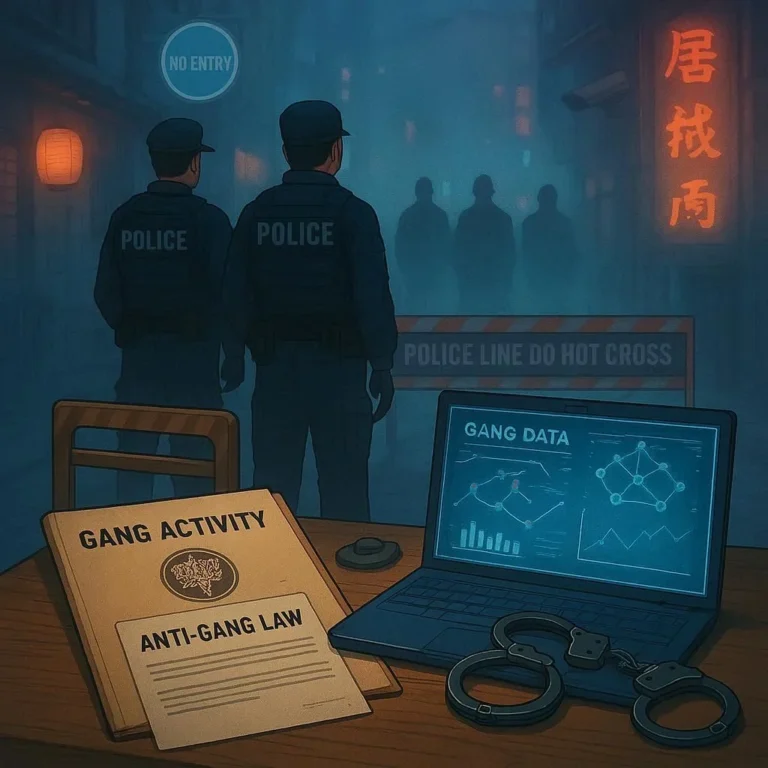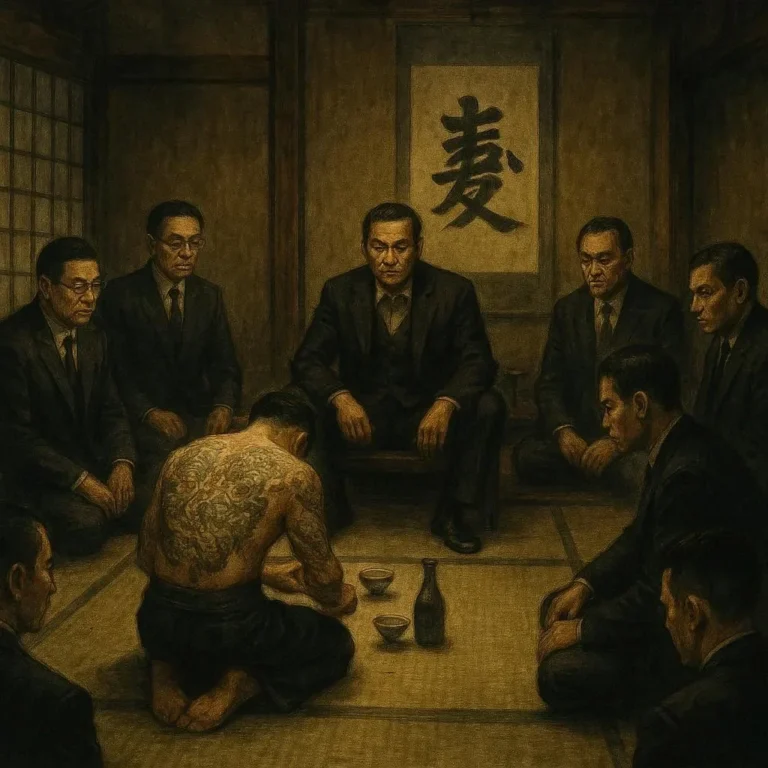506 views How Yakuza Influence Local Economies and Communities
The Yakuza, often romanticized in popular culture, is Japan’s oldest and most infamous organized crime syndicate. While their activities are widely known to include extortion, gambling, and drug trafficking, their influence extends far beyond the criminal underworld. In many parts of Japan, the Yakuza plays a significant role in shaping local economies and communities. This blog post delves into the complex relationship between the Yakuza and the localities they operate in, exploring both their economic impact and their social influence.
The Yakuza’s Economic Influence
The Yakuza’s influence on local economies is multifaceted. On one hand, they are known to disrupt legitimate businesses through extortion, forcing small business owners to pay protection money. This practice, known as “jinmyaku,” is a lucrative source of income for the Yakuza and can stifle the growth of local businesses. However, the Yakuza also plays a role in maintaining a form of order in the underground economy, particularly in industries such as construction, real estate, and entertainment.
In the construction industry, for example, the Yakuza often acts as a mediator in disputes between contractors and clients. While this may seem like a legitimate service, it often comes at a cost, with the Yakuza taking a cut of the profits. Similarly, in the real estate market, the Yakuza has been known to facilitate land deals, though these transactions are often tinged with coercion and intimidation.
The entertainment industry, particularly in red-light districts, is another area where the Yakuza exerts significant control. They often own or have stakes in nightclubs, casinos, and other establishments that cater to both locals and tourists. While this generates revenue for the local economy, it also perpetuates a cycle of exploitation, with many workers in these industries facing harsh conditions and little legal recourse.
The Yakuza’s Social Influence
Beyond their economic activities, the Yakuza also wields significant social influence in many communities. In some areas, they are seen as a source of stability and order, particularly in neighborhoods where the police presence is limited. The Yakuza often presents itself as a protector of the community, mediating disputes and maintaining a semblance of order. This image is reinforced by their hierarchical structure, which mirrors traditional Japanese values of loyalty and honor.
In many rural areas, the Yakuza has historically been involved in local festivals and cultural events. They may sponsor fireworks displays, donate to local charities, or even participate in traditional parades. These activities help to cultivate a positive public image and garner support from the local community. However, this involvement often comes with an unspoken understanding that the community will tolerate, if not outright support, the Yakuza’s criminal activities.
The Yakuza’s influence also extends into the political arena. In some regions, they have been known to support local politicians, either directly or indirectly, in exchange for favorable treatment or turning a blind eye to their activities. This relationship can create a dangerous dynamic, where political leaders are beholden to criminal organizations and are thus less inclined to enforce laws that could disrupt the Yakuza’s operations.
The Yakuza’s Role in Governance
In some communities, the Yakuza has essentially become a parallel governance structure. They may collect taxes from local businesses, provide dispute resolution services, and even enforce their own code of conduct. While this may provide a semblance of stability, it also undermines the authority of legitimate government institutions.
The Yakuza’s role in governance is perhaps most evident in their handling of public works projects. In some cases, they have been known to oversee the construction of roads, bridges, and other infrastructure, ensuring that projects are completed on time and within budget. While this may seem beneficial, it often involves the use of intimidation and coercion to secure contracts and labor at below-market rates.
The Yakuza’s Impact During Times of Crisis
The Yakuza’s influence is perhaps most visible during times of crisis. Following natural disasters such as earthquakes and tsunamis, the Yakuza has often been quick to provide aid to affected communities. They may distribute food, water, and other essential supplies, and even assist in cleanup efforts. While these actions may be motivated by a genuine desire to help, they also serve to strengthen the Yakuza’s image as a benevolent organization and reinforce their ties to the community.
This phenomenon was particularly evident following the 2011 Tohoku earthquake and tsunami, which devastated large swathes of northeastern Japan. While government relief efforts were slow to reach some areas, the Yakuza was able to quickly mobilize resources and provide assistance to affected communities. This not only earned them goodwill but also highlighted the limitations of the government’s response.
Ethical Considerations
While the Yakuza’s influence on local economies and communities is undeniable, it is important to approach the topic with a critical eye. The Yakuza’s activities, while sometimes beneficial, are ultimately rooted in criminality and exploitation. Their involvement in legitimate industries often comes at the expense of fair labor practices and honest business dealings.
Moreover, the Yakuza’s social influence, while it may provide a sense of stability and order, also perpetuates a culture of fear and intimidation. Many individuals who cross the Yakuza, whether intentionally or unintentionally, face severe consequences, including physical violence and financial ruin. This creates a dynamic where individuals and businesses feel pressured to comply with the Yakuza’s demands, even if it means compromising their own values and interests.
Conclusion
The Yakuza’s influence on local economies and communities is a complex and multifaceted issue. While they may provide certain benefits, such as maintaining order and supporting local businesses, their activities are ultimately rooted in criminality and exploitation. As Japan continues to grapple with the challenges of organized crime, it will be important to address the root causes of the Yakuza’s influence and work towards creating a society where legitimate businesses and community organizations can thrive without the need for criminal intervention.
In the end, the Yakuza’s influence is a reflection of broader social and economic dynamics in Japan. Addressing their impact will require a comprehensive approach that combines stronger law enforcement with efforts to strengthen local economies and build resilience within communities. Only by tackling the Yakuza’s influence at its root can Japan hope to create a more just and equitable society for all its citizens.






